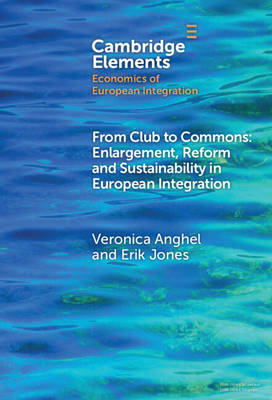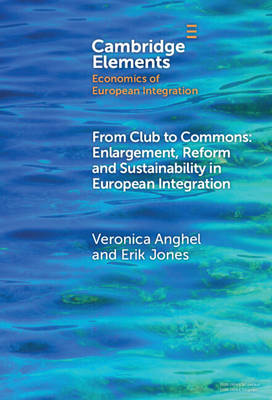
- Afhalen na 1 uur in een winkel met voorraad
- Gratis thuislevering in België vanaf € 30
- Ruim aanbod met 7 miljoen producten
- Afhalen na 1 uur in een winkel met voorraad
- Gratis thuislevering in België vanaf € 30
- Ruim aanbod met 7 miljoen producten
Zoeken
From Club to Commons
Enlargement, Reform and Sustainability in European Integration
Veronica Anghel, Erik Jones
€ 112,95
+ 225 punten
Uitvoering
Omschrijving
The Element identifies the logic of how the European Union (EU) has developed both in terms of the way the organization works and the way it has expanded to include new member states. It combines insights from the economic theories related to clubs and common-pool resources. The argument is that the EU may have started as a club, where members agreed to lose arrangements to generate and govern non-rivalrous goods from which only they could benefit, but it quickly evolved into a system of common-pool resources, where members have to manage rivalrous goods, the access to which cannot easily be refused to outsiders. That evolution was necessary to avoid the depletion of the goods EU member states depend on. The argument is illustrated through the evolution of the single market, the single currency, the single financial space, and security. This title is also available as Open Access on Cambridge Core.
Specificaties
Betrokkenen
- Auteur(s):
- Uitgeverij:
Inhoud
- Aantal bladzijden:
- 92
- Taal:
- Engels
- Reeks:
Eigenschappen
- Productcode (EAN):
- 9781009499200
- Verschijningsdatum:
- 20/11/2025
- Uitvoering:
- Hardcover
- Formaat:
- Genaaid
- Afmetingen:
- 152 mm x 229 mm
- Gewicht:
- 294 g

Alleen bij Standaard Boekhandel
+ 225 punten op je klantenkaart van Standaard Boekhandel
Beoordelingen
We publiceren alleen reviews die voldoen aan de voorwaarden voor reviews. Bekijk onze voorwaarden voor reviews.







